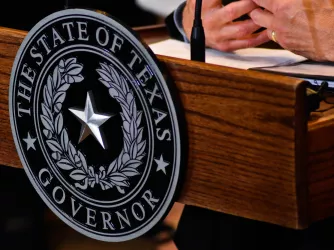Table of Contents
At Temple University, ‘That Word Doesn’t Mean What You Think It Means’
Temple University, I must say, has the most arbitrary processes I've ever seen. Its administrators either have no idea what they are doing or else they actually have no concern whatsoever for justice or even for the English language.
I'm not just talking about Temple's exceedingly poor treatment of student Christian DeJohn, which led to an embarrassing loss at the Third Circuit when the court agreed with a lower court in throwing out Temple's unconstitutional speech code. Actually, it was Temple's former speech code, since Temple had changed it but kept defending the old one, so the courts simply didn't trust Temple enough not to change it back after the legal proceedings were completed.
And I'm not just talking about Temple's arbitrary treatment of Temple University Purpose (TUP), a student group that had brought Dutch politician Geert Wilders to campus, by charging the group for extra security after the event. After FIRE intervened, Temple claimed that it could have charged the group thousands of dollars more. Temple arbitrarily offered to withdraw the extra fee, then unilaterally withdrew it. In its latest letter, Temple merely stated that the matter was closed, chilling speech at Temple. Who would bring another controversial speaker to campus, risking thousands of dollars of after-the-fact security fees and random, arbitrary treatment?
More plain craziness out of Temple involves Temple University Purpose again, this time over a speech by FIRE President Greg Lukianoff this spring. Because of a minor flaw in the paperwork and alleged attempts to reach the group to discuss it (which the group denies and Temple has provided no evidence of), Jason Levy, Temple's Director of Student Center Operations, put TUP on probation.
Then, the group was told that it was only on Student Center probation, not real probation. Office of Student Activities Director Gina D'Annunzio wrote then-TUP President Alvaro Watson on April 14:
Student Center Operations has placed your organization on probation, not Student Activities. My department is not responsible for the reservations process on campus. Our two departments share an office suite and this seems to be the cause of much confusion for students. In the interest of fact-sharing, I thought you should be aware.
Dizzy yet?
Levy's disciplinary e-mail had stated that if the group messed up once more while on probation, he would restrict the group's ability to reserve space in the Student Center. Temple's term for this is a "scheduling restriction." According to a note taker for Theresa A. Powell, Vice President for Student Affairs, however, in an April 27 meeting with Watson, Levy had already placed TUP on a scheduling restriction:
Dr. Powell confirmed that TU Purpose is not on probation. She clarified that Student Center Operations placed TU Purpose on a scheduling restriction due to the organization's failure to follow procedures in room reservations.
Theresa Powell's assertion here is plainly false and misleading. Watson tried to correct the record, he says, but Powell refused to make the correction. According to Watson, after being pressed many times to clarify TUP's actual status Powell said in the meeting:
"No, TU Purpose was never on probation." Watson asked then why it was that Mr. Levy said TUP was on probation. Dr. Powell replied that the word "probation" can be interpreted in many ways, and that the way in which Mr. Levy used the word was not the way Watson interpreted it.
Here's what Levy actually wrote:
Please note that we will not charge your for tonight's security, but that we will be adding TU Purpose to the student org. probation list for the remainder of the semester. Any additional policy or procedure infractions may cause loss of reservation privilege and/or cancellation of future events.
So, according to Vice President Powell, "probation" does not mean what seemingly normal people—including Office of Student Activities Director Gina D'Annunzio—think it means. The word has a secret meaning known only to select Temple University administrators.
The Temple University administrators in these cases appear to have no respect for the First Amendment. They are just making everything up as they go along. They will be hearing from FIRE once again.
Recent Articles
FIRE’s award-winning Newsdesk covers the free speech news you need to stay informed.

Gov. Greg Abbott’s order ‘hardening state government’ against China is dangerously hard to parse

Right, left, and in-between: Can we bring our differences to the table?

From the UK to Germany to Singapore: Police are watching what you post
